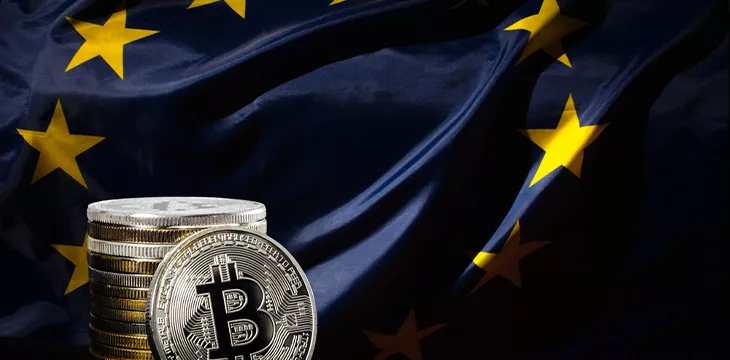|
Getting your Trinity Audio player ready...
|
Last week, hundreds of key players in the digital currency industry descended on Paris to hear more about the European Union’s famous regulatory clarity.
However, if they thought they were going to hear news of a free-for-all, they were mistaken. Verena Ross, Executive Director of the European Securities and Markets Authority (ESMA), said, “I’m not sure I would necessarily use the word friendly” when discussing MiCA and the EU’s approach to regulation.
Ross clarified that the EU had created a unified regulatory regime for the industry with
Markets in Crypto-Assets Regulation (MiCA) but that companies locating themselves on the continent should be prepared for changes and even a new regime in the future. When that happens, they must be ready to comply, she said.
MiCA, regulations, and why the EU is right
While complying with regulations will be no problem for legitimate companies engaged in real commerce, such as money transfers, those with riskier, grey-area business models will likely be put off by what they heard in Paris. This is, most likely, what the EU intends.
There’s no doubt that blockchain technology and digital currencies offer a lot of potential innovation. Scalable utility blockchains enable micropayments, faster settlements, greater financial transparency, easier regulatory compliance and enforcement, and the automation of many burdensome administrative processes.
However, for too long, companies in the industry thought they could get away with anything in the name of innovation. Ross clarified that this isn’t the case in the EU, and the bloc, renowned for being a stickler for the rules, will only welcome firms focused on using revolutionary technology for legitimate purposes.
MiCA is but one of the rule sets governing the industry in the EU. It lays out clear rules related to consumer protection, stablecoin regulation, AML measures, and issuing and trading ‘crypto assets.’ Service providers are required to keep records of payments made using digital currencies, stablecoin issuers face strict capital requirements, and issuers have to publish detailed whitepapers, among other requirements.
Governance and regulations are only increasing worldwide
As the EU regulations show, blockchain governance and regulation are becoming more
important with every passing day. All over the world, governments are laying down rules to govern the industry, which many believe will play a key part in the future.
Governance and regulations will be a key topic at the London Blockchain Conference 2024. Like the industry chieftains who went to Paris last week, those interested in utility blockchains and how the regulatory landscape is evolving should consider attending on May 21st-23rd, 2024, at ExCeL London.
Watch: Yves Mersch—Regulatory frameworks for digital currency in Europe

 02-20-2026
02-20-2026 




